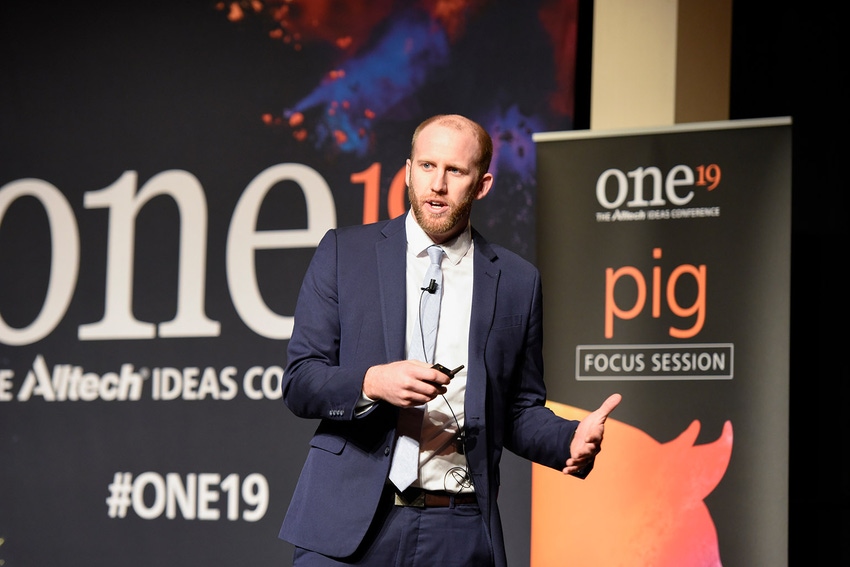Finding a feed mitigant that stands up to ASF
Through two isolation studies, three bioassay studies and one nursery performance trial, APC has shown efficacy in preventing the transmission of the PED virus as well as the PRRS virus and Senecavirus A in feed.

Before porcine epidemic diarrhea virus hit North America in 2013 taking out 7 million pigs, Jon De Jong says no one in the swine industry would have considered feed to be part of a biosecurity program.
“When PEDV hit the North America herd, we immediately went to work on what we can do to stop viral transmission in feed,” says De Jong, president of Pipestone Nutrition.
While the root cause of the PED virus introduction to the United States has not been conclusively determined, the Pipestone team says contaminated feed and feed ingredients may have served as vehicles for introduction. The original PED virus strain detected in the United States shared 99.7% to 99.8% nucleotide identity with a Chinese PED virus strain and through a trans-Pacific transportation model created by Pipestone veterinarian Scott Dee and South Dakota State University, the team was able to show that the PED virus can survive the transport period in five key ingredients used to formulate porcine rations, including soybean meal (organic and conventional), vitamin D, lysine hydrochloride and choline chloride.
Fast forward six years down the road and the team has now expanded that “CSI approach,” working with Kansas State University to test 10 more viruses, one being African swine fever virus, and its ability to survive in feed. The team has shown that seven of the 11 animal viruses tested can survive the transglobal journey from either China or Europe to the United States in multiple feed ingredients.
The Pipestone team has now placed their focus on finding a mitigant that can reduce the viral load in feed. This week during ONE: The Alltech Ideas Conference, De Jong along with Gordon Spronk, veterinarian and chair on the Pipestone Veterinary Services board of directors, announced that Alltech is acquiring a new mitigant technology called APC from Cornerstone (a joint venture between Pipestone and Ani-Tek to explore the technology). Through two isolation studies, three bioassay studies and one nursery performance trial, APC has shown efficacy in preventing the transmission of the PED virus as well as the porcine reproductive and respiratory syndrome virus and Senecavirus A in feed.
The next step is to see how the technology stands up to ASF.
“Pipestone is committed to the science to understand the risk of virus and how those viruses are transmitted to pigs and then at the same time dedicated to finding new technologies, which is where Alltech comes in,” De Jong says. “They acquired this new technology from us, and we are dedicated to providing solutions to the independent farmers we work with and trying to keep their herds as healthy as possible.”
About the Author(s)
You May Also Like





